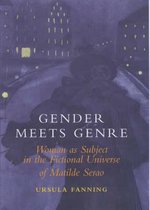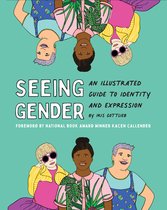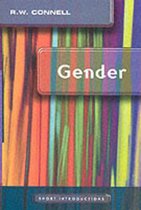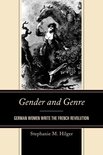Gender and Genre German Women Write the French Revolution
Afbeeldingen
Sla de afbeeldingen overArtikel vergelijken
- Engels
- Paperback
- 9781611495317
- 24 mei 2016
- 183 pagina's
Samenvatting
In the wake of the French Revolution, history was no longer imagined as a cyclical process in which the succession of ruling dynasties was as predictable as the change in the seasons. Contemporaries wrestled with the meaning of this historical rupture, which represented both the progress of the Enlightenment and the darkness of the Terreur. French authors discussed the political events in their country, but they were not the only ones to do so. As the effects of the French Revolution became more palpable across the border, German authors pondered their implications in newspapers, political pamphlets, and historiographical treatises. German women also participated in these debates, but they often embedded their political commentary in literary texts because they were discouraged, and sometimes even barred, from publishing in explicitly political and public venues. As such, literature, in the sense of belles lettres, had a compensatory function for women: it allowed them to engage in political discussion without explicitly encroaching on certain domains that were perceived as a male preserve. As women writers explored the uses of literature for political commentary they adapted major literary genres in order to consolidate their position in the late eighteenth- and early nineteenth-century literary sphere. Those genres included domestic fiction, the historical novel, historical tragedy, autobiography, the Robinsonade, and the Bildungsroman. Women writers challenged the images of women traditionally portrayed in these genres: dutiful daughter, submissive wife, caring mother, tantalizing mistress, angelic figure, and passive victim. Gender and Genre discusses six women writers who replaced these traditional female types with women warriors and emigrants as protagonists in texts published between 1795 and 1821: Therese Huber, Caroline de la Motte Fouqué, Christine Westphalen, Regula Engel, Sophie von La Roche, and Henriette Frölich. These authors’ protagonists question traditional images of passive femininity, yet their battered bodies also depict the precarious position of women in general, and women writers in particular, during this period. Because women writers were attacked by their male counterparts who attempted to halt their foray into the literary marketplace, these texts are as much about power dynamics in the German literary establishment as they are about French politics.
Productspecificaties
Inhoud
- Taal
- en
- Bindwijze
- Paperback
- Oorspronkelijke releasedatum
- 24 mei 2016
- Aantal pagina's
- 183
- Illustraties
- Nee
Betrokkenen
- Hoofdauteur
- Stephanie Hilger
- Tweede Auteur
- Stephanie M. Hilger
- Hoofduitgeverij
- University Of Delaware Press
Overige kenmerken
- Extra groot lettertype
- Nee
- Product breedte
- 150 mm
- Product hoogte
- 13 mm
- Product lengte
- 229 mm
- Studieboek
- Ja
- Verpakking breedte
- 151 mm
- Verpakking hoogte
- 14 mm
- Verpakking lengte
- 229 mm
- Verpakkingsgewicht
- 272 g
EAN
- EAN
- 9781611495317
Kies gewenste uitvoering
Prijsinformatie en bestellen
De prijs van dit product is 50 euro en 99 cent.- Prijs inclusief verzendkosten, verstuurd door bol
- Ophalen bij een bol afhaalpunt mogelijk
- 30 dagen bedenktijd en gratis retourneren
- Dag en nacht klantenservice
Alle bindwijzen en edities (3)
-
45,99Direct beschikbaar
-
50,993 - 4 weken
Levertijd
We doen er alles aan om dit artikel op tijd te bezorgen. Het is echter in een enkel geval mogelijk dat door omstandigheden de bezorging vertraagd is.
Bezorgopties
We bieden verschillende opties aan voor het bezorgen of ophalen van je bestelling. Welke opties voor jouw bestelling beschikbaar zijn, zie je bij het afronden van de bestelling.
Tooltip -
88,993 - 4 weken
Levertijd
We doen er alles aan om dit artikel op tijd te bezorgen. Het is echter in een enkel geval mogelijk dat door omstandigheden de bezorging vertraagd is.
Bezorgopties
We bieden verschillende opties aan voor het bezorgen of ophalen van je bestelling. Welke opties voor jouw bestelling beschikbaar zijn, zie je bij het afronden van de bestelling.
Tooltip
Rapporteer dit artikel
Je wilt melding doen van illegale inhoud over dit artikel:
- Ik wil melding doen als klant
- Ik wil melding doen als autoriteit of trusted flagger
- Ik wil melding doen als partner
- Ik wil melding doen als merkhouder
Geen klant, autoriteit, trusted flagger, merkhouder of partner? Gebruik dan onderstaande link om melding te doen.











